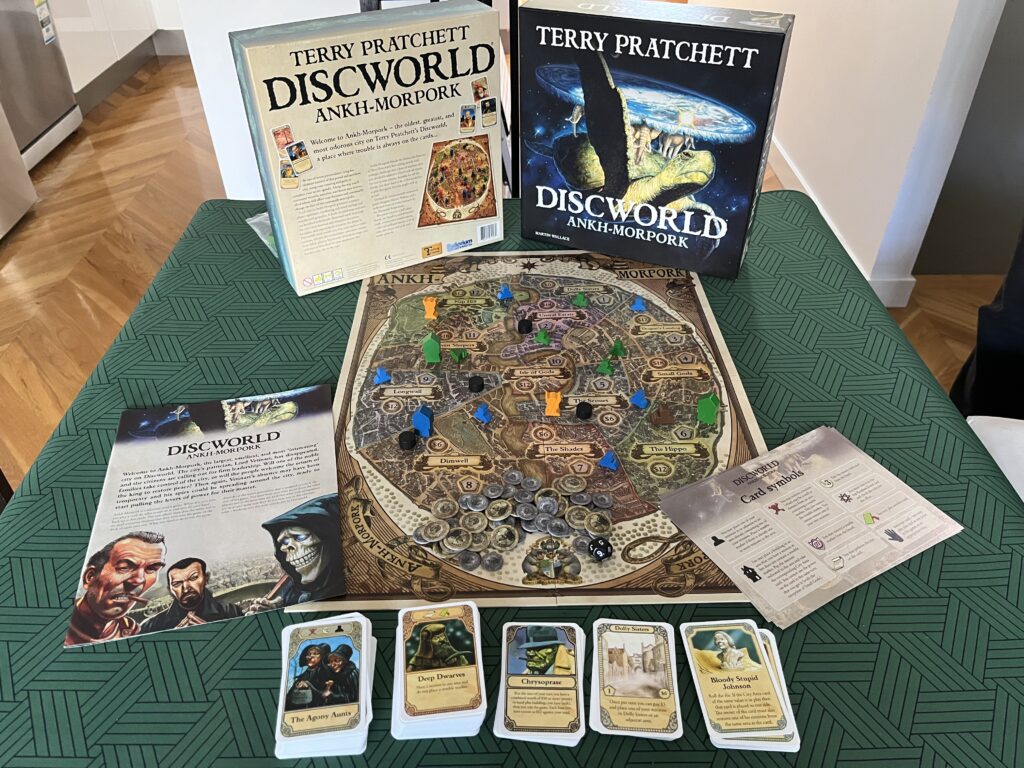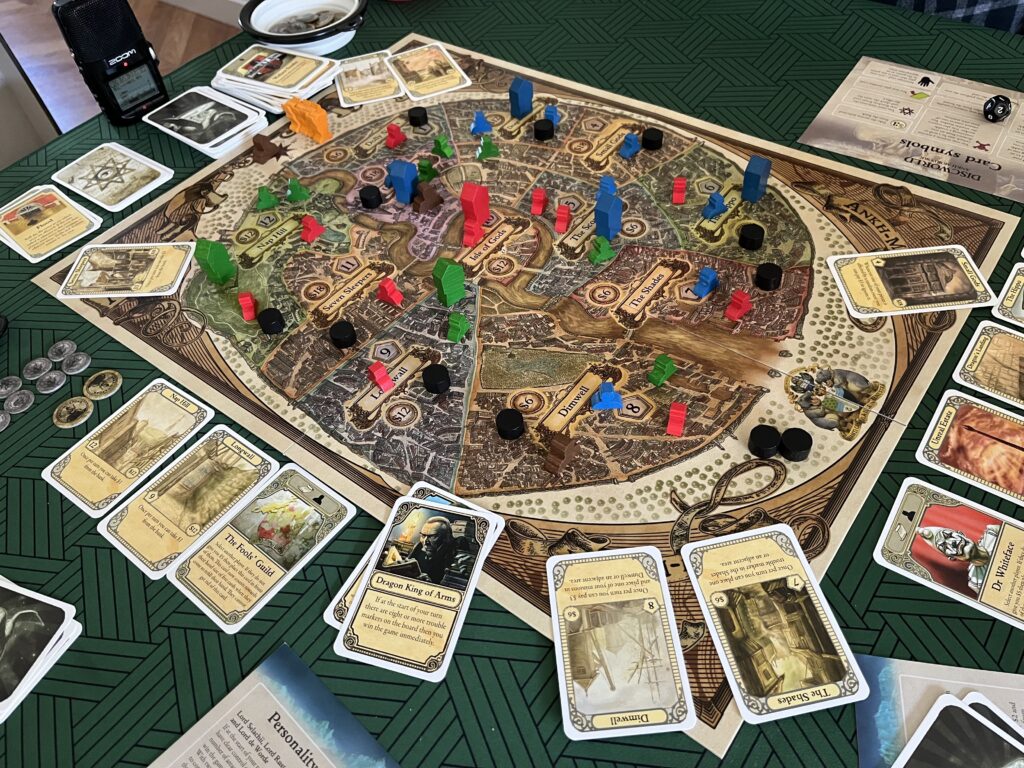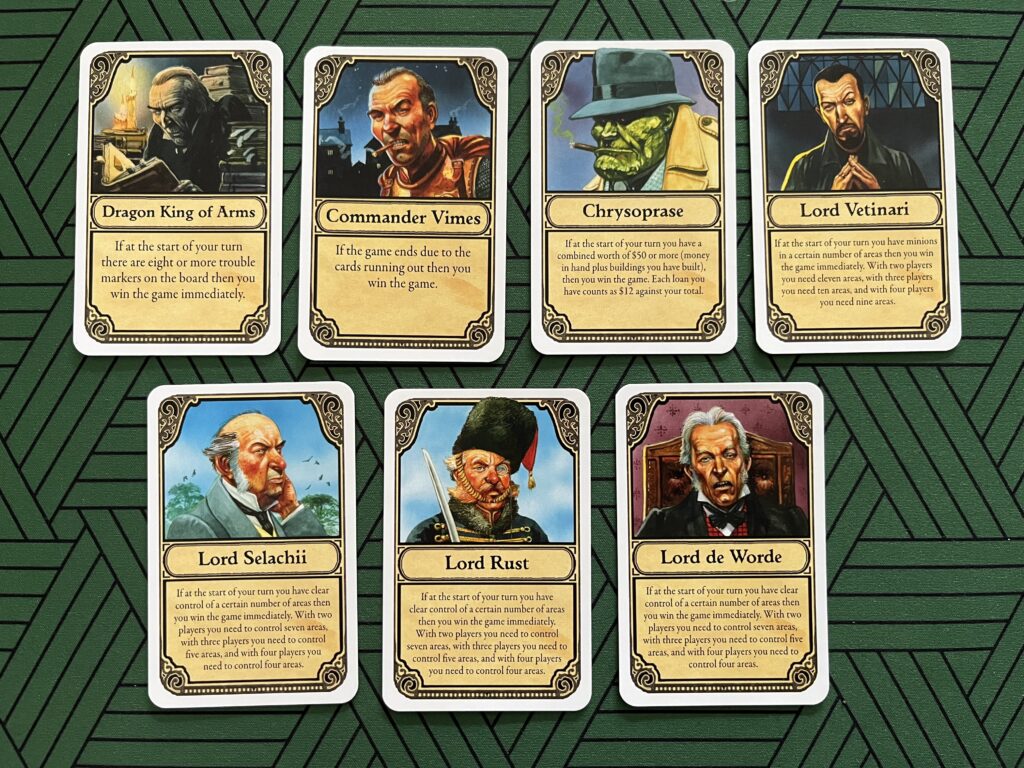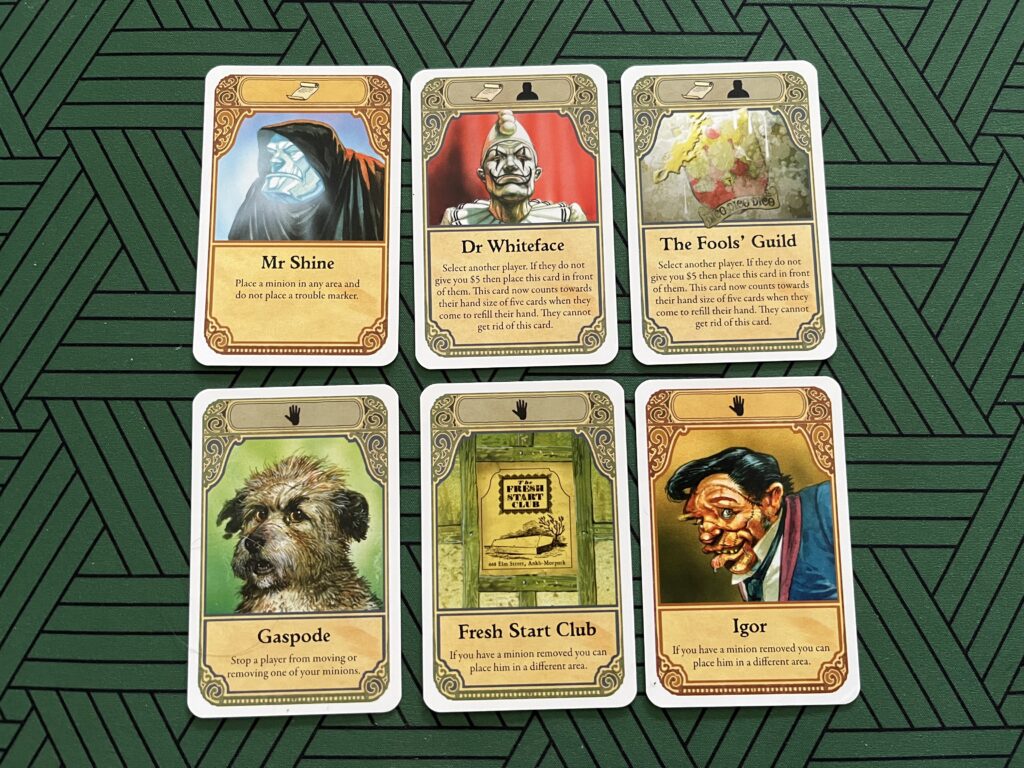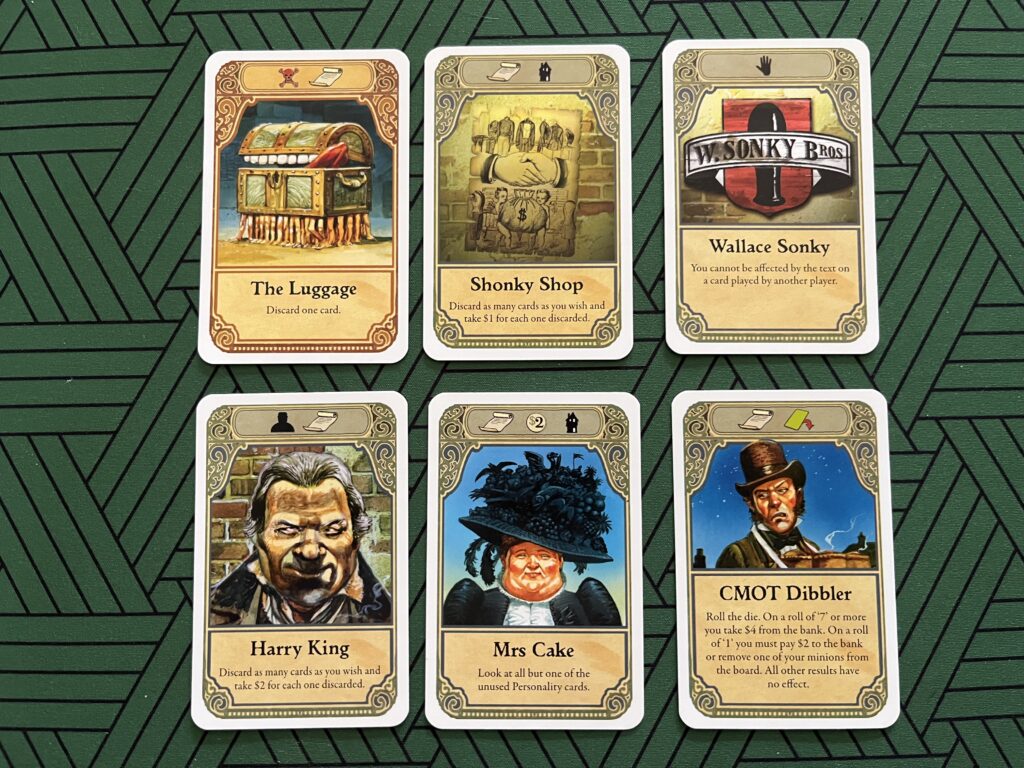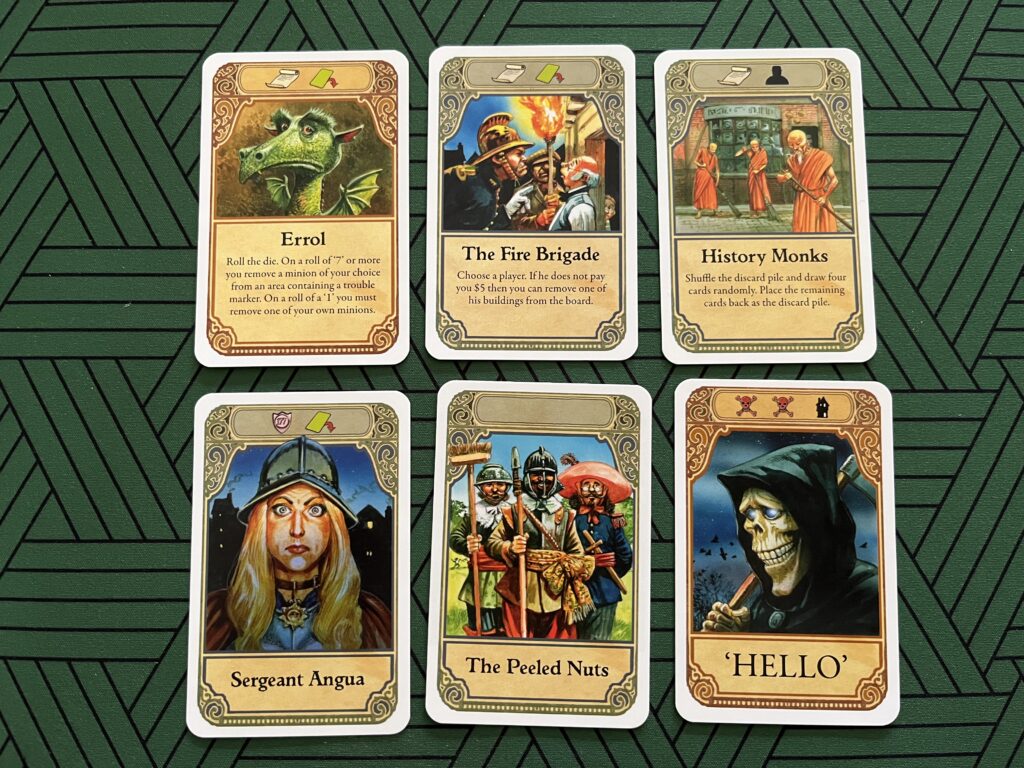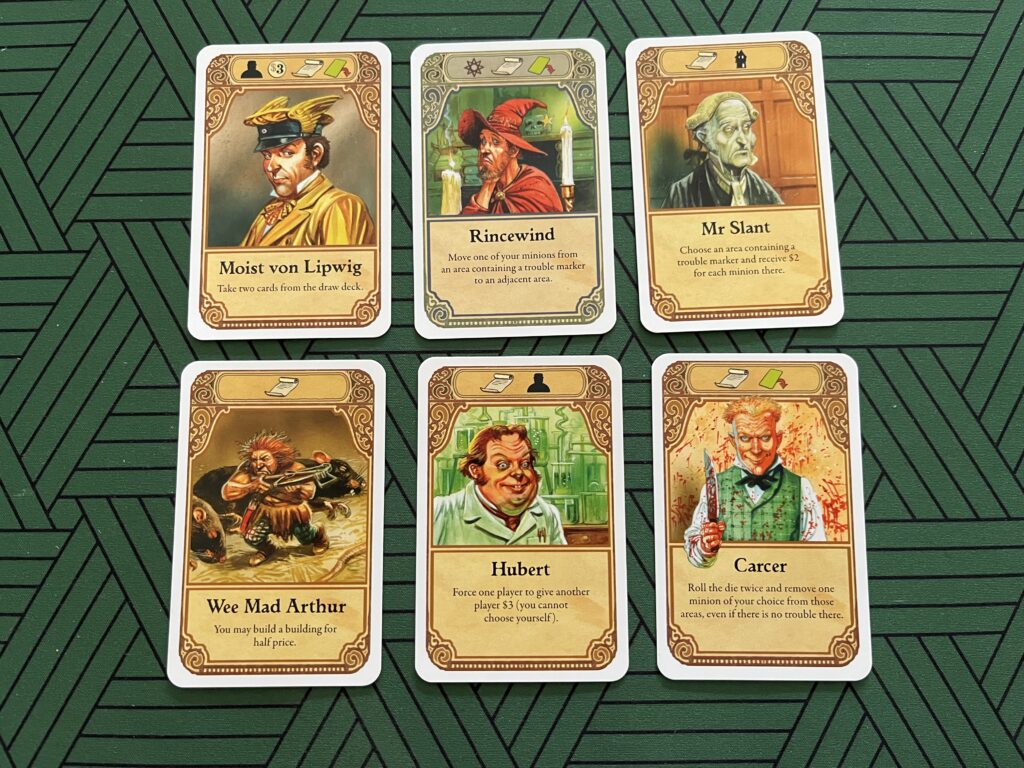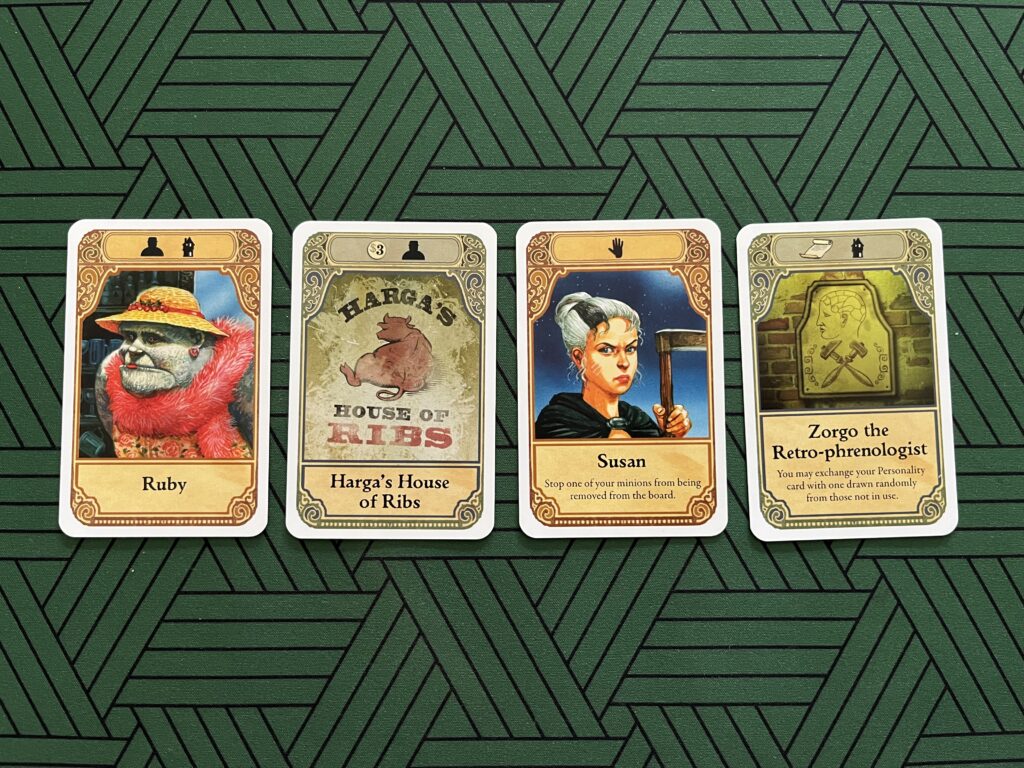#Pratchat88 Notes and Errata
These are the episode notes and errata for Pratchat episode 88, “They’re All Good Dragons, Bront”, discussing Paul Kidby’s 2024 art book, Designing Terry Pratchett’s Discworld, with guest Brendan Barnett.
Iconographic Evidence
We can’t show you photos of the book, but you can find a lot of the art on Paul Kidby’s official website.
Notes and Errata
- The episode title refers to a famous tweet from the social media account WeRateDogs. This account shared photos of dogs submitted by their owners on Twitter, and rated them with outrageously positive comments, giving all of them scores of at least 10 out of 10. In 2016, another Twitter user named Brant complained about their rating system. WeRateDogs asked “Bront” (a deliberate misspelling of his name) why he was so mad, and he replied that “you give every dog 11s and 12s, it doesn’t make any sense”. Their now famous reply: “They’re good dogs Bront”. (We based our title on the misquote “They’re all good dogs, Bront”.) WeRateDogs is still going, and still a delight; you can find their social links at weratedogs.com.
- The book Brendan describes from his youth with Death keeping bees is almost certainly the original large-format edition of Eric, lavishly illustrated by Josh Kirby. See #Pratchat7, “All the Fingle Ladies”.
- The desktop calendar Brendan mentions might have been a Discworld Day-to-Day Calendar, available in 1999 and/or 2000. It’s one of those types with a plastic stand holding a pad of small square sheets, one for each day of the year. Ben thinks he might also have had one of these back then.
- George Rex is an Adelaide-based illustrator and cartoonist, and friend of the podcast. She appeared as a guest in #Pratchat7, “All the Fingle Ladies” and #Pratchat55, “Mr Doodle, the Man on the Moon”.
- For the record, the book does a great job of crediting all the art by other artists or from other publishers in an appendix. Ben just wishes the Kidby pieces were given years and sources as well!
- Colin Morgan is an Irish actor most famous for playing the titular young wizard in the BBC fantasy adventure TV series Merlin from 2008 to 2012. His other credits include the sci-fi series Humans, Kenneth Branagh’s film Belfast, and the podcast drama Passenger List. He was the narrator for the first full sub-series of new Discworld audiobooks from Penguin, the Wizards books. That includes The Colour of Magic, The Light Fantastic, Sourcery, Eric, Interesting Times, The Last Continent, and Unseen Academicals. (The Last Hero is not published by Penguin, and did not get an audiobook.)
- Tiffany Aching’s Guide to Being a Witch is a 2023 book written by Rhianna Pratchett and Gabrielle Kent, compiling Tiffany’s in-character thoughts on witchcraft with commentary by many of her mentors (amongst other characters). It’s published in a very similar format to Designing Discworld, and is also lavishly illustrated by Paul Kidby. We originally planned to discuss both this book and Tiffany Aching’s Guide in the same episode as this one, but we’ve got other plans for it now – watch out for a discussion of it next year. We interviewed Rhianna and Gabrielle when it came out in #Pratchat74, “Hogswitch”.
- On closer inspection, Ben thinks the “handwritten” footnotes might be done using a handwriting font rather than actually being written by Paul. He’s not sure, but either way, it’s a fun visual choice!
- The painting Ben describes is actually The Discworld Massive Massif, a larger and much expanded version of Kidby’s earlier Discworld Massif. The new was painted to commemorate Paul’s thirty years of illustrating Discworld in 2023. It features 140 characters, which we assume isn’t a deliberate reference to the old days of Twitter. You can buy one of a limited collector’s edition print of it from Paul Kidby’s website, or get it in jigsaw puzzle form from the Discworld Emporium.
- There’ll be more notes on art and artists to come, but for now, here’s a list of UK first edition cover artists of Terry Pratchett’s major works. (The American covers are a whole other thing.)
- Terry did his own covers for his first two novels, The Carpet People and The Dark Side of the Sun (#Pratchat18, “Sundog Gazillionaire”). His third, Strata (#Pratchat68, “Discus Ex Machina”), had a piece by Tim White which bears little connection to the novel itself.
- The original cover for The Colour of Magic (#Pratchat14, “City-State Lampoon’s Disc-Wide Vacation”) was by Alan Smith.
- Josh Kirby was brought in when the Discworld novels moved to Gollancz and Corgi, and he did them all – as well as various spin-offs – until his death in 2001, his last being Thief of Time (#Pratchat48, “Lu-Tze in the Sky with Lobsang”). Kirby also did the original covers for Truckers (#Pratchat9, “Upscalator to Heaven”), Diggers (#Pratchat13, “Don’t Quarry Be Happy”) and Wings (#Pratchat20, “The Thing Beneath my Wings”), plus new covers for Terry’s older novels when they were re-published by Corgi. He also did art for most German editions of Pratchett’s other books, including anthologies of short stories in which work by Pratchett appeared.
- Cartoonist Gray Joliffe collaborated with Pratchett on The Unadulterated Cat (#Pratchat22, “The Cat in the Prat”), including the original cover art. (The most recent edition was The Unadulterated Maurice, which replaced the cover and all interior illustrations with images of Maurice from The Amazing Maurice film.)
- The original cover for Good Omens (#Pratchat15, “It’s the End of the World as We Know It, But We Feel Nice and Accurate”) was designed by Chris Moore, though the most famous early cover was for the paperback edition, which features art by Graham Ward.
- The Johnny Maxwell books didn’t originally have unified cover designs, with each one done by a different artist: David Scutt for Only You Can Save Mankind (#Pratchat28, “All Our Base Are Belong to You”), John Avon for Johnny and the Dead (episode currently unavailable), and an uncredited designer for Johnny and the Bomb (#Pratchat37, “The Shopping Trolley Problem”).
- In between Kirby and Kidby, presumably because it was the first Discworld book for younger readers, The Amazing Maurice and His Educated Rodents (#Pratchat33, “Cat, Rats and Two Meddling Kids”) originally had cover art by David Wyatt.
- Paul Kidby’s first Discworld covers weren’t for novels, but for other books – diaries, maps, the New Discworld Companion, and The Science of Discworld (#Pratchat35, “Great Balls of Physics“). After collaborating on The Last Hero (#Pratchat55, “Mr Doodle, the Man on the Moon”), he took over the main Discworld covers beginning with Night Watch (#Pratchat54, “The Land Before Vimes”), including the Tiffany Aching books. He did the original cover for Dodger (#Pratchat6, “A Load of Old Tosh”), and later new covers for the Johnny books, and a deluxe illustrated edition of Good Omens.
- The spin-off picture book Where’s My Cow? (#Pratchat62, “There’s a Cow in There”) had cover and interior art by Melvyn Grant.
- The original UK cover of Nation (#Pratchat41, “The Adventures of Crab Boy and Trouser Girl”) is by Johnny Duddle, who also did the interior artwork.
- The Long Earth (#Pratchat31, “It’s Just a Step to the West”) and all four of its sequels have covers designed by Rich Shailer, who also did all the exploded diagrams that appear on the inside.
More notes coming soon!
Thanks for reading our notes! If we missed anything, or you have questions, please let us know.

